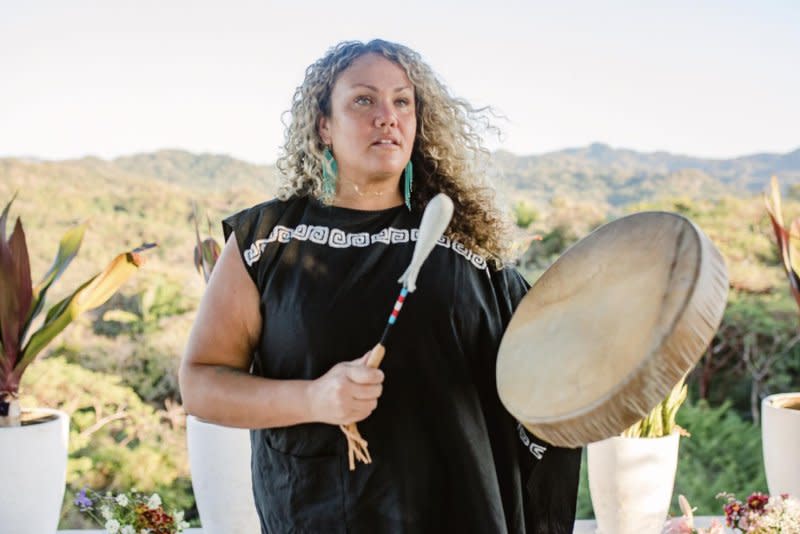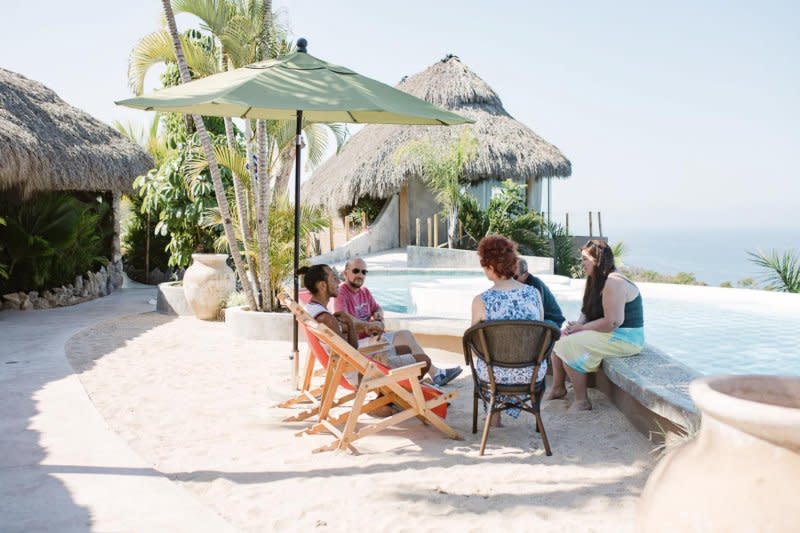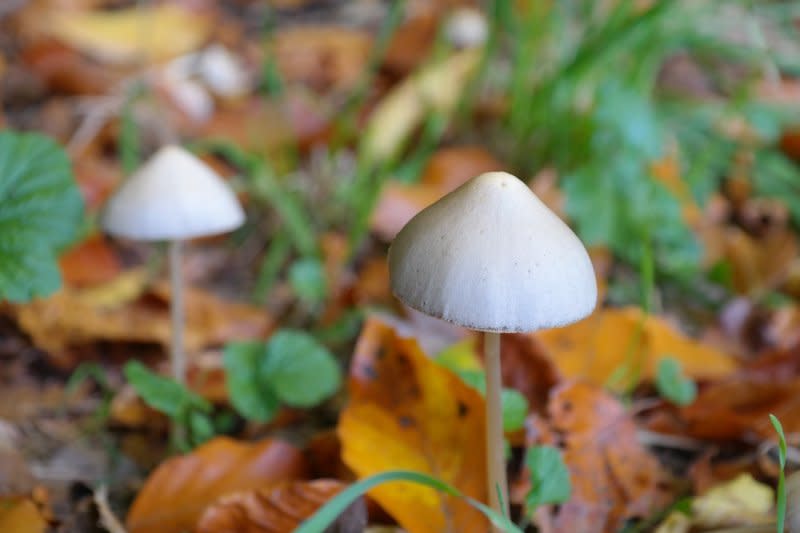'Magic mushroom' retreats gain popularity amid cautions

Feb. 23 (UPI) -- The hallucinogenic psilocybin, derived from fungus, has been used in religious rites and ceremonies for hundreds of years in places like Peru and Brazil. But it recently found a foothold among Americans, with travelers attending magic mushroom retreats for physical and mental healing.
That's despite a federal ban on using the mushrooms under the Controlled Substances Act, which includes them in the same category as LSD.
Some research supports low toxicity and low likelihood of abuse, safe psychological responses, and little chance of persisting adverse effects. But people have had unexpected and frightening experiences after using so-called magic mushrooms.
The temptation to try the mushrooms, largely for spiritual healing, has led to a rise in visitors to resorts in Colorado and Oregon, as well as Mexico, Colombia, Peru and Costa Rica.
Retreat Guru, an online directory of psychedelic getaways, yoga retreats and ayahuasca experiences, suggests more than a dozen retreats from which to choose in the United States and many more spread across the world.

The Netherlands and Spain, for example, host more than 300 psilocybin-centric wellness retreats combined.
Amanda Schendel, founder of Buena Vida Psilocybin Retreats in Mexico, said she has led more than 850 guests through the magic mushroom experience at the resort that opened in 2019. In the last five years, she's seen more retreats spring up, but also quite a few close.

"This is very intense work that requires a lot of training preparation and the ability to hold the emotional space of a group," Schendel said, adding that it's important for prospective travelers to do research on trip leaders to determine what kind of training they have and learn about the methodology they use.
While living in Arizona in 2020, small businesswoman Stefanie Lerner signed up for a weeklong retreat with Buena Vida, searching for a way to mediate an "existential dread." When she was able to finally take the vacation in 2022, an experience she calls "magic," Lerner went on three "journeys" over seven days.

"They were able to create a beautiful and safe space, with yoga, breath work and clean eating, so I felt very safe and comfortable before we even took mushrooms," she told UPI.
Researchers like the late neuroscientist Roland Griffiths, who studied the effects of psilocybin to treat multiple forms of addiction, PTSD and other psychiatric illnesses, found strong research suggesting that receiving psilocybin under supportive conditions can have long-lasting effects like decreasing anxiety and depression or treat obsessive-compulsive disorder.
Bita Moghaddam, the Ruth Matarazzo Professor of Behavioral Neuroscience at Oregon Health, has spent more than 30 years researching the neuroscience behind "tripping," and worked with Griffiths.
An author and scholar, Moghaddam said she sees the rise in popularity of treatments like psilocybin as a result of a jump in depression, anxiety, and alcohol and drug use disorders.
"Our current approaches -- such as antidepressant or anti-anxiety meds -- are not effective in many people and have many side effects," she said. "If something like psilocybin or MDMA can actually help folks ... there should be efforts in using it and making it available safely."
Moghaddam said it's important to remember psilocybin has many long-term effects, and its misuse can be dangerous. She warned the glamour of its use could give the false impression that people can cure psychiatric symptoms simply by taking psilocybin as needed.
She cited an incident in October when off-duty pilot Joseph Emerson tried to cut the engines on an Alaska Airlines flight some 48 hours after taking magic mushrooms for the first time. He told investigators he tried the mushrooms because he had been suffering from depression for six months.
The crew restrained Emerson, and he ultimately was charged with 83 of recklessly endangering another person and one count of endangering an aircraft. His lawyer pleaded not guilty for him, and he was required to obtain mental health services.
In 2019, rock star Harry Styles told a reporter he was high on mushrooms when he bit off the tip of his tongue while recording at Shangri-La Studios in California.
"We have no data showing that taking psilocybin alone with no clinical guidance relieves symptoms," Moghaddam said.
Social worker Shari Kaplan, founder of Cannected Wellness in Boca Raton, Fla., said she's seen the healing effects of mushrooms firsthand while guiding dozens of patients using them.
Before ingesting the mushrooms, Kaplan said, she has patients engage in a discussion to determine their intentions, "boiling it down to one or two negative aspects to release and one or two desired aspects to move toward."
Once the medicine is activated, she said, patients lie down for a two- to three-hour experience.
Potential positive effects of taking psilocybin include a sense of joy, awe, apparent magical or supernatural experiences, euphoria, laughter, ego suppression and enhanced empathy, while negative effects can be paranoia, fear, nausea and anxiety.
Much of the effect depends on dosage, with 0.2 to 0.5 gram being considered a microdose, 0.8 to 1.5 grams considered a low dose, and 1.5 to 3.5 grams delivering a trip that might include visual hallucinations, closed eye visuals and changes in-depth perception, distorted time perception and a loss of rational thinking.
After about three hours, Kaplan said she uses a variety of therapy techniques with her patients, including "ego state" work and cognitive behavioral therapy.
"Mushrooms are activators and teachers," she said. "If you don't take the mushrooms with deliberate intentions, you may start experiencing some of your unresolved stress and grief at an untimely time or in a way that you are not prepared to handle on your own."
Thanks to an influx of money for research and development, alongside greater awareness of mental health treatments, the magic mushroom market is estimated to reach $1.2 billion by 2027. Globally, the psychedelic drugs market is projected to reach $6.39 billion by 2034, with much of that attributed to the development of psilocybin, according to a recent ResearchAndMarkets study.
Matthew Lowe, the executive director of Unlimited Sciences, a nonprofit focuses on observational research of psychedelic consumption in Colorado, recently launched the Psychedelic Info Line (1-888-210-3553) to provide callers considering exploring psychedelics with an extensive research library of peer-reviewed studies to help reduce harm.
Lowe said Unlimited Sciences' research has shown anecdotal reports of psilocybin use leading to improvement to relationships, improved career or work life, a better diet and even changes to personality, such as reduced introversion.
In Massachusetts, nonprofits like Bay Staters for Natural Medicine are helping facilitate more therapeutic experiences on a donation basis. According to group co-founder and executive director James Davis, its certified guides have helped hundreds of people take their first trip, paying "on a sliding scale."
"We caution people that paying a high amount for a retreat anywhere in the world can be a huge mistake because about 1 in 5 five people do not feel or experience psilocybin regardless of the dose," Davis told UPI. "Don't buy the hype. Let the medicine and opportunity find you through someone you know and trust."
Davis said while mushrooms have become more accessible in places like Oregon, growing and sharing them remains heavily criminalized, which has led to higher costs for nonprofits, startups and consumers.

